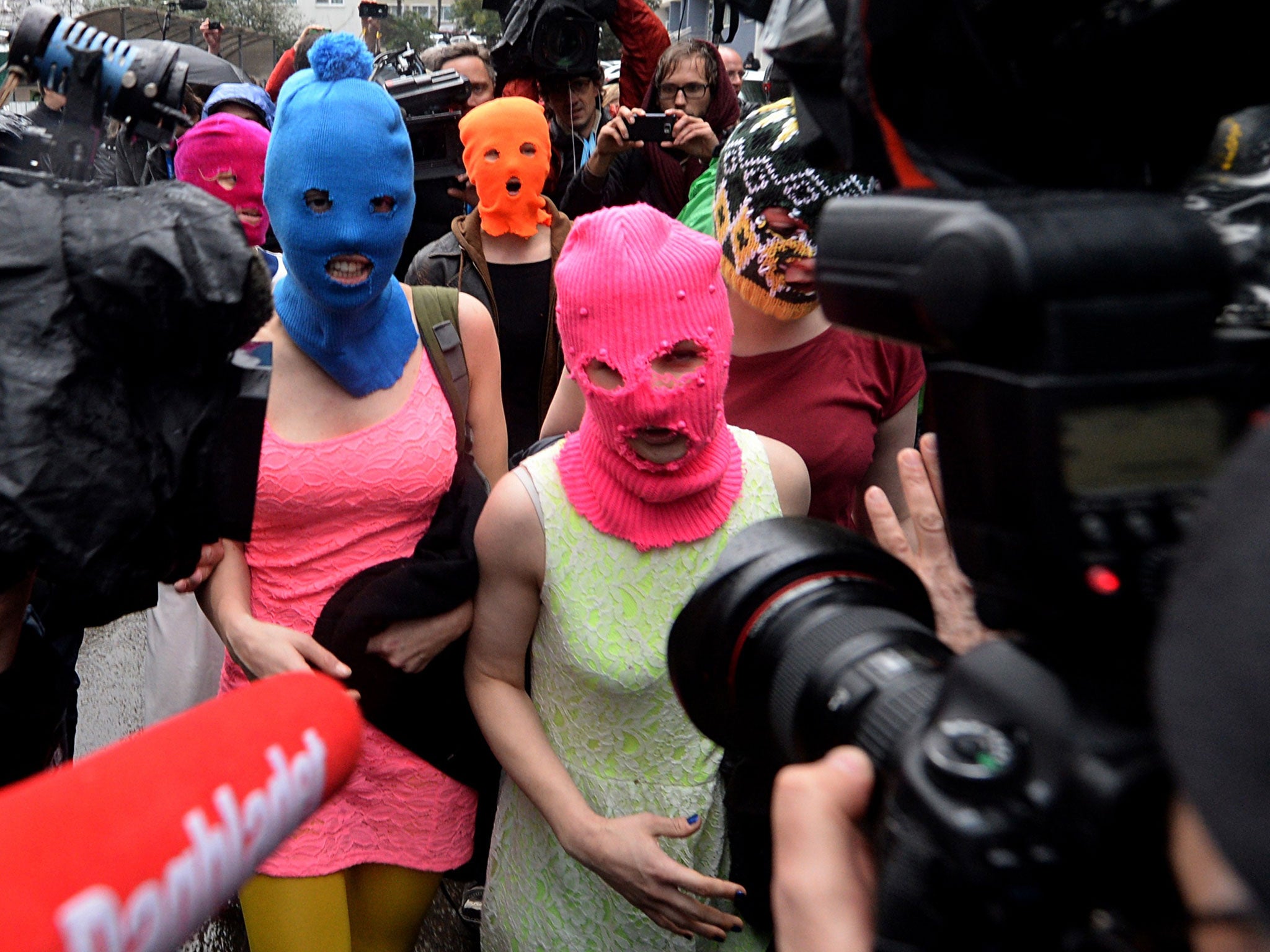Pussy Riot activists who received 'death threats and political harassment' granted asylum in Sweden
Couple say they received death threats after protesting against Putin and Russia's security service

Two activists linked to the Russian protest group Pussy Riot have successfully appealed against their rejected asylum application and received shelter in Sweden, Swedish broadcaster SVT has reported.
Lusine Dzhanyan and Alexei Knedlyakovsky, who have two children, won their appeal of a 2018 ruling, where Swedish authorities said their situation did not justify asylum.
SVT said Ms Dzhanyan and Mr Knedlyakovsky sought asylum in the Scandinavian country a year earlier, claiming they had received death threats and experienced “politically motivated” harassment because of the group’s protests.
Ms Dzhanyan told SVT: “I am happy that my children will grow up in safety, especially considering the developments at home (in Russia).”
Pussy Riot came to prominence in 2012 when its members were imprisoned for staging a protest against the Russian president, Vladimir Putin, in a Russian Orthodox cathedral in Moscow.
Mr Knedlyakovsky was jailed for 15 days in 2016 for hanging a cross on a statue depicting the head of the FSB, Russia’s security service.
Last year, the European Court of Human Rights condemned Russia for sentencing three Pussy Riot members to two years in a prison colony after they performed the protest song against Mr Putin in 2012.
AP
Join our commenting forum
Join thought-provoking conversations, follow other Independent readers and see their replies
Comments